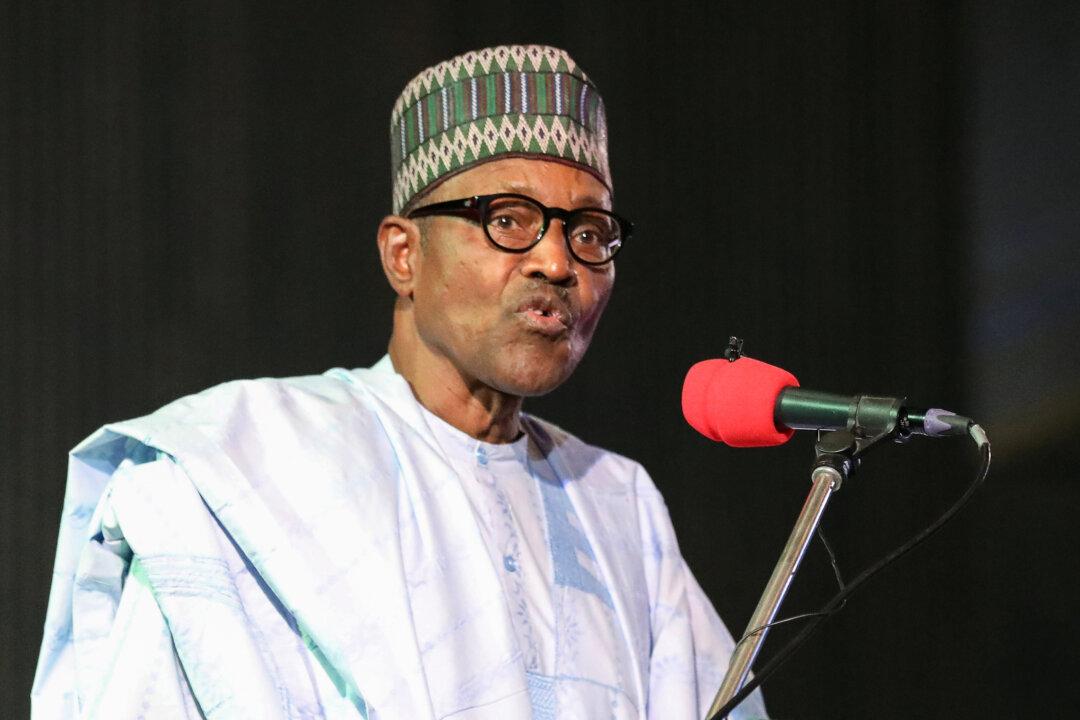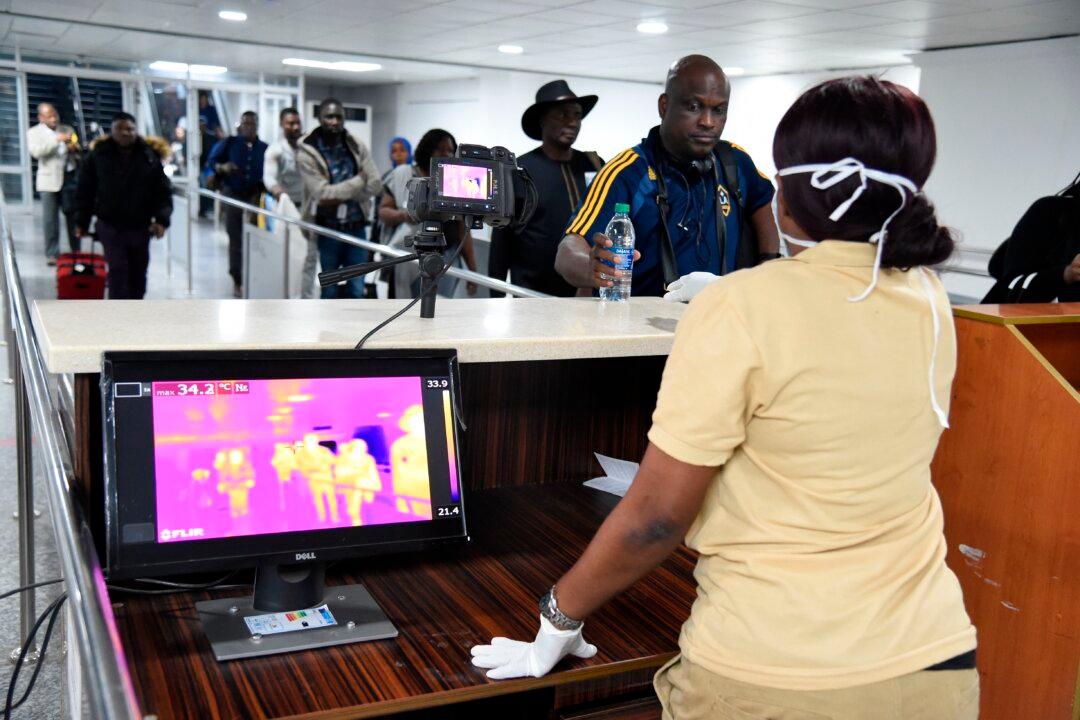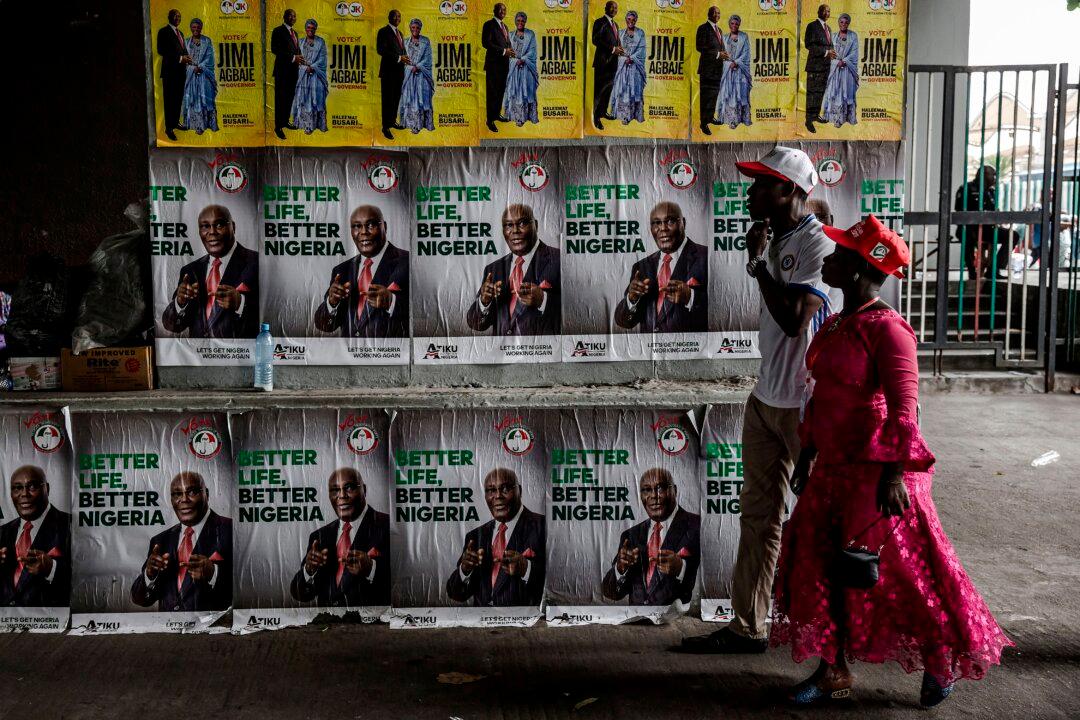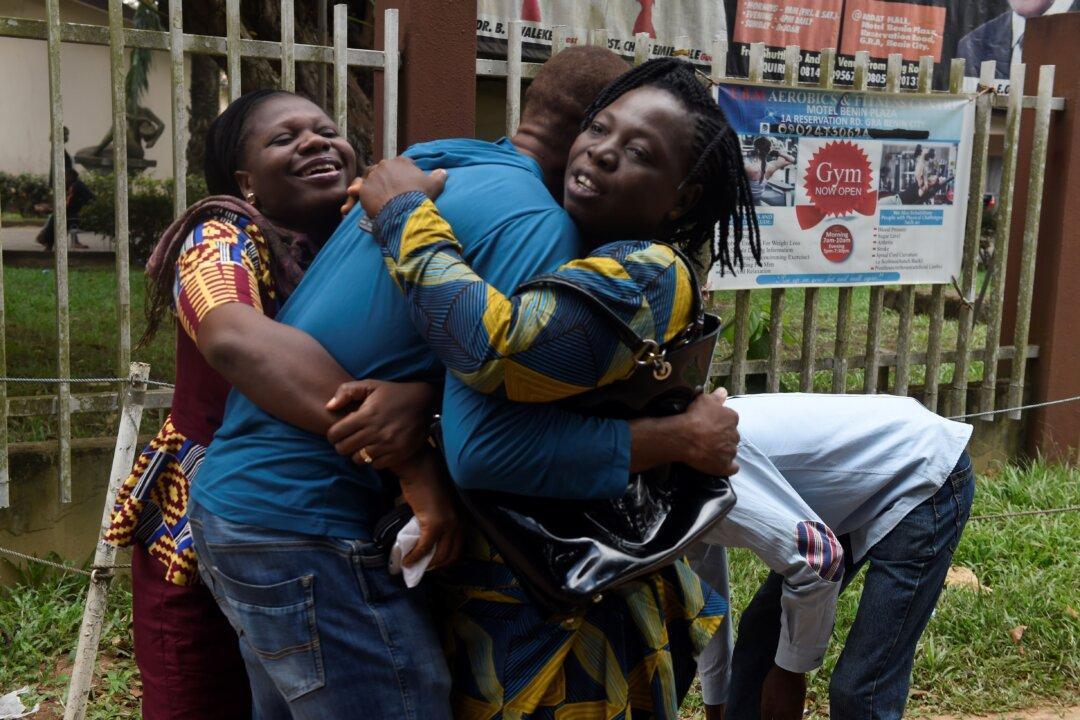LAGOS, Nigeria—Amakiri Ibisaki went to her job at the Independent National Electoral Commission (INEC), Nigeria’s electoral umpire, during the presidential and national assembly elections on Feb. 23 but she didn’t return home.
Killed by a stray bullet during electoral violence in Rivers State of Nigeria, she joined the long list of casualties at the polls that were marred by violence, faulty machines, poor logistics, and reports of mass rigging in many parts of the country.




